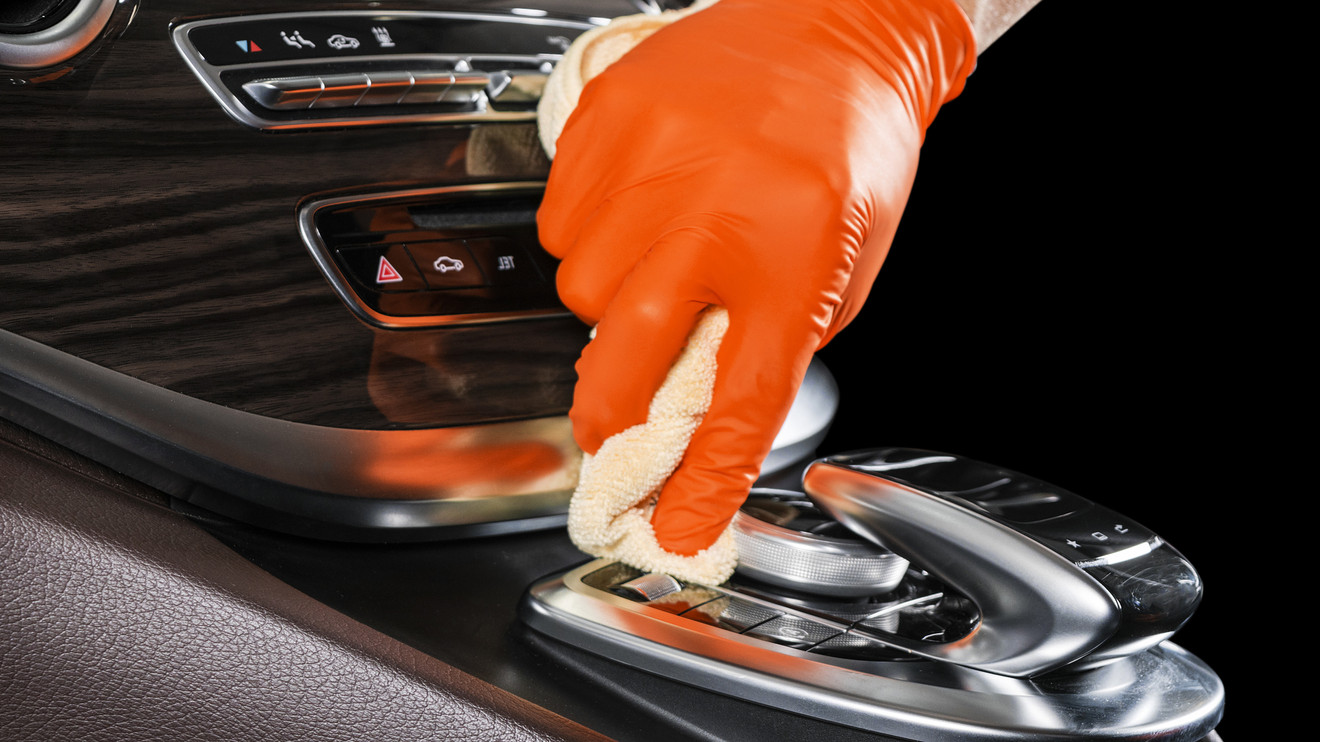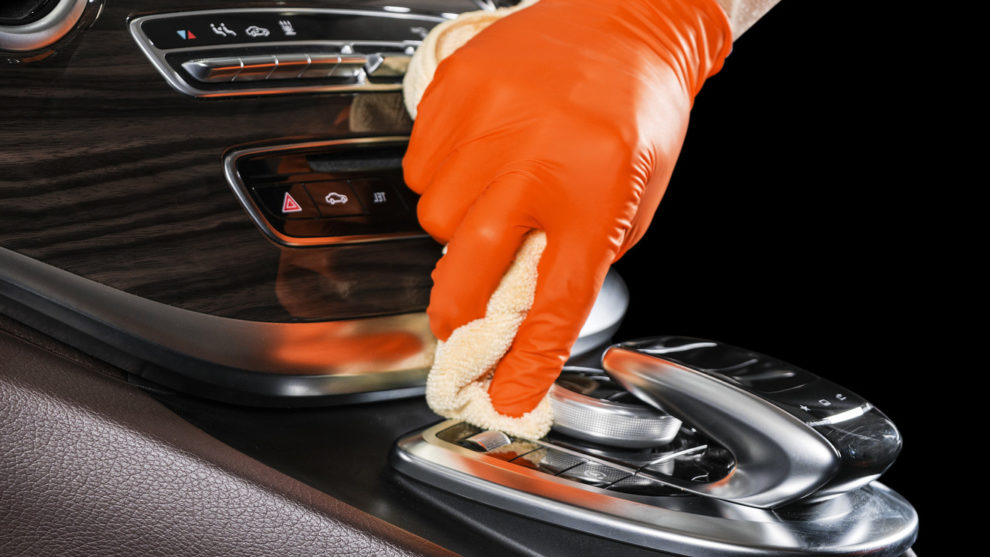
It is impossible to turn on the television, radio, see a newspaper or talk with a neighbor without hearing about the coronavirus disease (COVID-19). What is it and can it make your vehicle sick?
We at Kelley Blue Book want to help you make informed decisions on what the best practices are to keep your vehicle as clean as possible while reducing the spread of the virus.
What is the coronavirus?
Coronaviruses are viruses that commonly circulate among humans and cause mild illnesses like the common cold. The novel coronavirus is a new, previously unidentified, strain.
The virus was first detected in Wuhan City, Hubei Province, China. The first infections link to a live animal market. It spreads quickly from person to person. It is now spreading through the community. Containment recommendations include a quarantine in place and constantly cleaning surfaces for at least a 14-day period.
Consulting with a doctor and submitting for medical tests will ensure that you are either past the point of infection or not carrying the virus. Either way, it is essential to keep in contact with your medical practitioner until they give you the “all clear.”
According to the U.S. Centers for Disease Control and Prevention, because of the virus’s poor survivability on surfaces, there is a very low risk from products packaged and shipped over a period of days or weeks at ambient temperatures. There is currently no evidence of COVID-19 transmission by the receipt of imported goods, nor are there any cases of the coronavirus in the U.S. through such imported goods.
Can my vehicle get sick from the coronavirus?
Nothing will happen to your car, truck or SUV should the coronavirus get onboard. But if not properly cleaned, your vehicle could be a hotbed of coronavirus and other infections and germs. It is for this reason that we suggest using hand sanitizers and disinfecting wipes to wipe down the interior of your car and any other area that could be considered a high-touch area. A good rule of thumb is to clean areas that you contact regularly and to sanitize your hands on an hourly basis.
This applies doubly in the case of rental vehicles, ride-sharing vehicles like Uber UBER, +4.10% and Lyft, LYFT, +2.75% share cars, share bikes and taxis. Be sure to wipe any areas that human hands typically touch. These include door handles, door latches, lock buttons, seat belts and buckles, window buttons, mirrors, radio and climate control buttons and more.
One more bit of advice: We don’t recommend storing a large pump bottle of hand sanitizer in your car. The heat buildup may cause the alcohol in the sanitizer to “boil,” resulting in an expansion of the sanitizer’s bottle. This, in turn, might result in leakage and a mess that will require an extensive cleaning effort. It is a better idea to carry a more manageable-sized bottle, that can be on or near your personal effects, whether in the home, office or on the road.
What’s the best way to clean your vehicle to reduce the existence of coronavirus?
Alcohol works best in your automobile or SUV’s cabin. It is the cleaner most used by manufacturers of most automotive interiors today. All it takes is a quick wipe to clean most germs and fingerprints. Soap and water will work, too.
Also see: The 10 best new car models of 2020
We suggest spending extra time on the steering wheel. The steering wheel has four times the amount of germs found on an average toilet seat, thanks to all the cracks and crevices on the rim and spokes, according to Expedia Travel Group’s website, CarRentals.com. For this reason, we suggest using disinfecting wipes to clean all the surfaces on the steering wheel. These include the redundant controls for radio, voice control, cruise control, navigation, and paddle shift levers. And don’t forget about the gear selector lever or the turn indicator stalks.
Also clean the door and center console armrests, display screens, cupholders, cubbyholes, air conditioner vents and even the door “grab handles.” You touch them more than you realize and are rife with bacteria and could carry coronavirus. You will very likely be surprised by the amount of dirt your wipes will pick up.
What not to use
We would advise against using any type of bleach or hydrogen peroxide on the vehicle’s interior. Both chemicals will put an end to the coronavirus germs, but they will also cause damage to the vinyl and plastics used in most modern vehicles today.
Also see: 8 new luxury SUVs for under $50,000
Under no circumstances should you use any ammonia-based cleaning products. These can be found in “blue glass cleaners.” (You know which we are talking about.) The ammonia breaks down the vinyl on the dashboard, making it sticky when subjected to heat and light. Additionally, to avoid damage to anti-glare coatings, the glass cleaner should not be used on touch display screens.
Finally, if you find yourself without any alcohol or other cleaners, a good scrubbing with soap and water will fill the bill. The coronavirus resides in a protective pocket that acts as a facilitator to infect other cells, but is broken down by soap. Heavy-duty cleaning will weaken the coronavirus. It just may take a little bit longer to effectively clean it properly. Don’t scrub too hard, though, as you might find you are removing some of the surface coatings or dyes.
Wash your hands, often
Finally, we cannot say this enough: Clean your hands regularly. Even after cleaning your vehicle properly, if your hands are dirty, you are putting germs right back onto an already clean surface.
Also see: How much do you tip the delivery person and Uber driver during the coronavirus pandemic?
These tips and bits of car cleaning advice will help keep your vehicle more germ-free than if you left it to fend for itself. No amount of cleaning can guarantee you won’t catch the coronavirus, but through these suggestions, you can help to minimize the risk of infection or spread. The bonus is that your car will enjoy its new status as a clean machine.
This story originally ran on KBB.com.
div > iframe { width: 100% !important; min-width: 300px; max-width: 800px; } ]]>











Add Comment